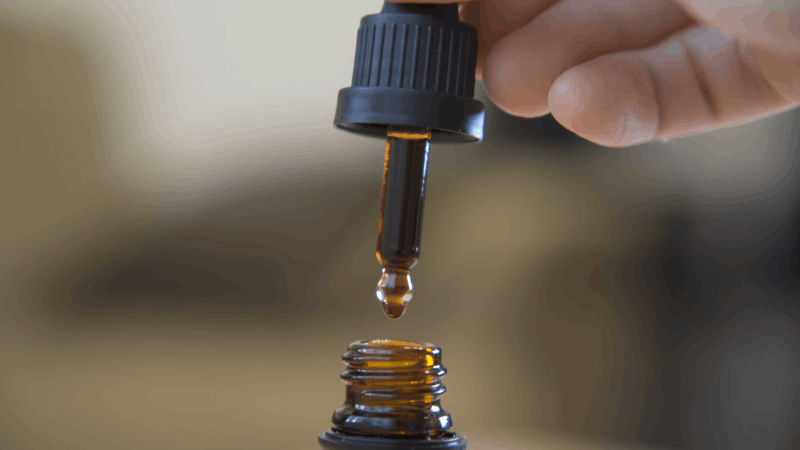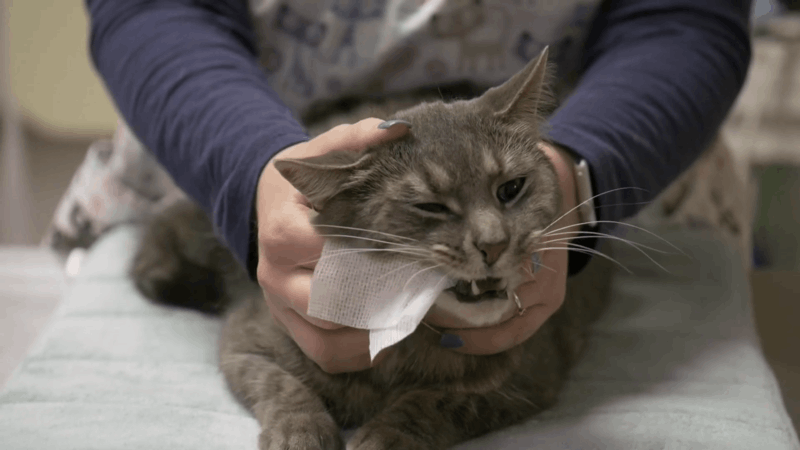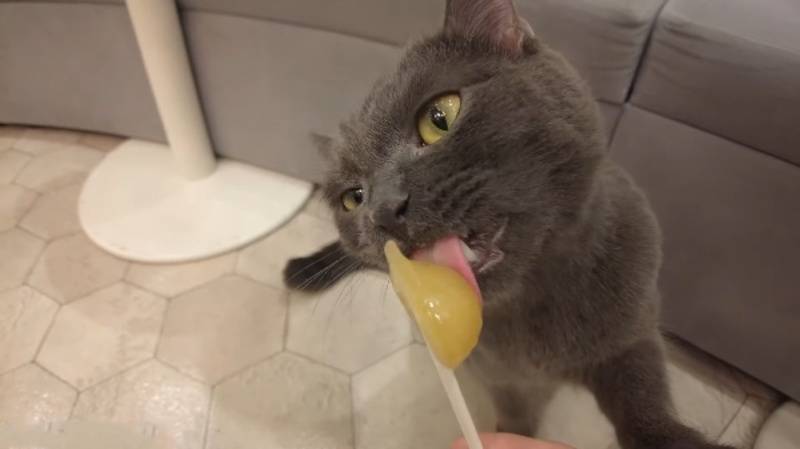No products in the cart.
Finding the best CBD for tooth pain in cats is a top priority for pet owners seeking effective remedies. The use of high-quality CBD oil specifically formulated for pets has emerged as a promising option. With its potential to alleviate inflammation, swelling, and discomfort, CBD offers a potential remedy for addressing dental issues in cats. In this blog, we will explore the best CBD for tooth pain in cats, cat dental disease symptoms, what can i give my cat for tooth pain, and cat tooth pain relief.
The Best CBD for Tooth Pain in Cats
The best CBD for tooth pain in cats is a high-quality CBD oil specifically formulated for pets. Look for CBD products that are derived from organic hemp, extracted using safe methods, and have undergone third-party testing for potency and purity. Choose CBD oils that are full-spectrum or broad-spectrum CBD oils since they contain a variety of advantageous terpenes and cannabinoids.

Benefits of CBD for Managing Tooth Pain in Cats
CBD cats offer several benefits for managing tooth pain in cats. Due to its inherent anti-inflammatory characteristics, it can aid in reducing swelling and irritation brought on by tooth problems. CBD also acts as an analgesic, providing pain relief for cats experiencing tooth pain. Additionally, CBD may help calm anxious or stressed cats, promoting a sense of relaxation during dental discomfort.
CBD Help Alleviate Discomfort for Cats With Tooth Pain
CBD can help alleviate inflammation and discomfort in cats with tooth pain through its interaction with the endocannabinoid system (ECS). The ECS plays a crucial role in regulating various bodily functions, including pain perception and inflammation. CBD interacts with cannabinoid receptors in the ECS, helping to modulate pain signals and reduce inflammation. By targeting these pathways, CBD can provide relief from tooth pain and associated symptoms.
Side Effects of CBD for Tooth Pain in Cats
The side effects of CBD for tooth pain in cats are generally mild, but it’s important to be aware of potential adverse reactions. When taking CBD, some cats may experience moderate side effects like tiredness, dry mouth, or stomach trouble. It’s essential to start with a low dosage and closely monitor your cat’s response. If any adverse effects occur, adjusting the dosage or discontinuing CBD use may be necessary. To ensure the safe and suitable use of CBD for your cat, speaking with a veterinarian is essential.
Factors for Determining the CBD Dosage for Cats With Tooth Pain
Several factors should be considered when determining the appropriate dosage of CBD for cats with tooth pain.
- Cat’s Weight: The weight of your cat plays a crucial role in determining the appropriate CBD dosage. Cats of different sizes may require different amounts of CBD to achieve the desired effect. Generally, a higher dosage may be needed for larger cats, while smaller cats may require a lower dosage.
- Severity of Tooth Pain: The severity of your cat’s tooth pain should be taken into account when determining the CBD dosage. Cats with more severe pain may require a higher dosage to effectively manage their discomfort, while cats with milder pain may benefit from a lower dosage.
- Cats’ Individual Sensitivity to CBD: Just like humans, cats can have different sensitivities to CBD. Some cats may be more sensitive and require lower dosages, while others may require higher dosages to achieve the desired relief. It’s important to observe your cat’s response to CBD and adjust the dosage accordingly.
- Specific CBD Products: Different CBD products may have varying potencies and concentrations. It’s essential to consider the specific CBD product you are using and follow the manufacturer’s guidelines for dosage recommendations. Some products may provide dosage instructions based on the cat’s weight, making it easier to determine the appropriate dosage.
The Role of CBD Oil in Providing Long-Term Relief for Cats With Tooth Pain
CBD oil can play a role in providing long-term relief for cats with tooth pain. By addressing inflammation, reducing pain signals, and promoting relaxation, CBD oil can help manage chronic or recurring tooth pain in cats. The cat’s general comfort and wellbeing can be enhanced by routinely using CBD oil as part of a comprehensive dental care strategy. However, it’s crucial to keep in mind that CBD should be taken in conjunction with appropriate veterinary care and dental treatments to address the underlying reasons for tooth pain and guarantee the best long-term outcomes for your cat.
Cat Dental Disease Symptoms
The kind and severity of the dental issue can affect the symptoms of a cat’s dental illness. Common symptoms include bad breath (halitosis), swollen or bleeding gums, yellow or brown tartar buildup on teeth, difficulty eating or chewing, pawing at the mouth, drooling, tooth loss, and changes in behavior or appetite.

Common Dental Diseases in Cats
Here are some common dental diseases in cats:
- Periodontal Disease: This is the most prevalent dental condition in cats. It involves the inflammation and infection of the gums and supporting structures of the teeth. It can result in tooth loss and other systemic health problems if left untreated.
- Tooth Resorption: Also known as feline odontoclastic resorptive lesions (FORLs), this condition causes the gradual destruction of a cat’s tooth structure, often starting at the gumline. It is a painful condition that can result in tooth loss.
- Gingivitis: Gum inflammation, or gingivitis, can be brought on by plaque buildup and poor oral care. It can lead to red, swollen, and bleeding gums if not addressed.
- Stomatitis: a mouth condition that hurts the gums, tongue, and other soft tissues by inflaming them. It can be excruciatingly uncomfortable, making it difficult to eat and causing weight loss as a result of the agony.
- Dental Abscesses: Abscesses can occur when bacteria invade the tooth root or surrounding tissues, causing infection and the formation of pus. They are often painful and require prompt veterinary attention.
Symptoms of Dental Disease in Cats
Depending on the type of dental issue, there are many signs of dental disease in cats. Here are some common symptoms to watch for:
- Bad Breath: Persistent bad breath, often described as fishy or rotten, is a common sign of dental disease in cats. It is caused by the buildup of bacteria in the mouth.
- Tooth Discoloration: Discolored teeth, typically yellow or brown, can indicate the presence of plaque and tartar buildup.
- Red and Inflamed Gums: Healthy gums should be pink, but if they turn red, swell, or bleed easily, that could indicate gingivitis or another gum condition.
- Difficulty Eating or Dropping Food: Cats with dental problems may experience pain or discomfort while eating, leading to decreased appetite, reluctance to eat, or dropping food from their mouth.
- Pawing at the Mouth: Cats in pain may paw at their mouth or rub their face against objects in an attempt to alleviate discomfort.
- Excessive Drooling: Increased drooling or saliva production can be a sign of oral pain or irritation.
- Weight Loss: Dental disease can make it difficult for cats to eat properly, resulting in weight loss or malnutrition.
- Behavioral Changes: Cats with dental pain may show changes in behavior, such as irritability, aggression, or a reluctance to be touched around the face or mouth.
Cat Tooth Pain Relief
Depending on the underlying reason and intensity of the pain, there are several ways to treat cat tooth discomfort. A veterinarian must be consulted for an accurate diagnosis and course of therapy. The veterinarian may prescribe pain medications or recommend dental procedures such as extractions or professional cleaning to address the source of the tooth pain and provide long-term relief.

Home Remedies and Techniques to Provide Temporary Relief From Tooth Pain
Home remedies and techniques can offer temporary relief from cat tooth pain. These include gently brushing your cat’s teeth with a soft toothbrush and cat-friendly toothpaste to remove plaque and promote oral hygiene. Providing your cat with soft, moist food or blending their regular food into a softer consistency can make it easier for them to eat without exacerbating the tooth pain. Additionally, offering cool water or ice cubes for your cat to lick can help soothe their mouth.
Tips for Comforting a Cat in Dental Distress
Comforting a cat in dental distress requires patience and a gentle approach. Make your cat’s habitat peaceful and quiet, giving them a warm and secure place to unwind. Avoid touching or applying pressure to the sensitive areas of their mouth. Offer soft and palatable food options to make eating more comfortable for them. Providing gentle petting and reassurance can help alleviate their anxiety and provide comfort during this time. However, it’s important to remember that these techniques provide temporary relief, and seeking professional veterinary care is necessary for proper diagnosis and long-term management of cat tooth pain.
Conclusion
CBD offers benefits such as reducing inflammation and providing pain relief. Factors such as dosage determination, potential side effects, and consulting a veterinarian are important. Proper nutrition and dental care are crucial for a cat’s oral health. By following these guidelines, cat owners can effectively support their feline companions in managing tooth pain and promoting overall well-being.
I am Nelson Cooper, I pursue my passion for writing and my belief is that cats love humans. I enjoy traveling and have a deep appreciation for the beauty of nature, as well as a soft spot for animals, particularly cats.



